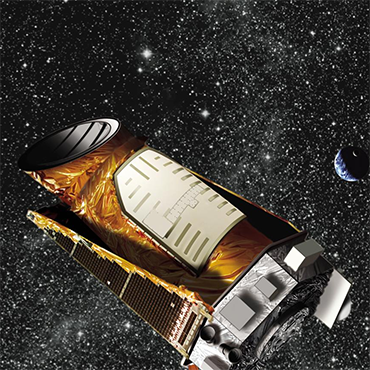NASA seeks new projects for malfunctioning Kepler
NASA is seeking alternative plans in case a fix isn't possible for the Kepler space telescope's malfunctioning reaction wheels.

There were promising signs when NASA first tried to resurrect its crippled Kepler telescope in late July, but the space agency is seeking alternative plans in case a fix isn't possible.
NASA engineers have put out a request for new mission proposals in the event that Kepler's reaction wheels – two of which failed between July 2012 and May 2013 – never again allow the telescope to maneuver precisely enough to hunt for planets outside the solar system.
"If one of the two reaction wheels cannot be returned to operation, it is unlikely that the spacecraft will resume the nominal Kepler exoplanet and astrophysics mission," NASA engineers said in a request for white papers. "The purpose of this call for white papers is to solicit community input for alternate science investigations that may be performed using Kepler and are consistent with its probable two-wheel performance."
NASA fired up Kepler's failed reaction wheels beginning July 18 after a temporary shutdown.
One responded normally to commands. The other was able to spin properly in only one direction. Both wheels experienced significant friction, which Kepler Mission Manager Roger Hunter said will be "critical in future considerations" as engineers decide how to proceed.
Kepler, launched in 2009 with a price tag of about $550 million, is already considered a NASA success. It has confirmed 134 extra-solar planets and detected another 3,200 possible planets that scientists are attempting to confirm. Based on Kepler's prior success, scientists expect 90 percent of those planets to be confirmed.
But without precise movement led by fully functioning reaction wheels, Kepler's repurposed mission scope could shift more toward data collection. It contains just one instrument, a large focal plane array, which further limits the scope of future missions.
"Therefore, in addition to proposals for science investigations, we are soliciting proposals for new and innovative techniques for instrument operation, data collection, instrument calibration, and data analysis that can improve photometric precision under conditions of degraded pointing stability, possibly including significant linear image motion," the request states.
Repurposed mission white papers are due by Sept. 3. NASA will review them through November. Should efforts to revive Kepler fail, NASA wants to begin a repurposed mission by summer 2014.
NEXT STORY: Study: Tweets Can Foretell Votes






